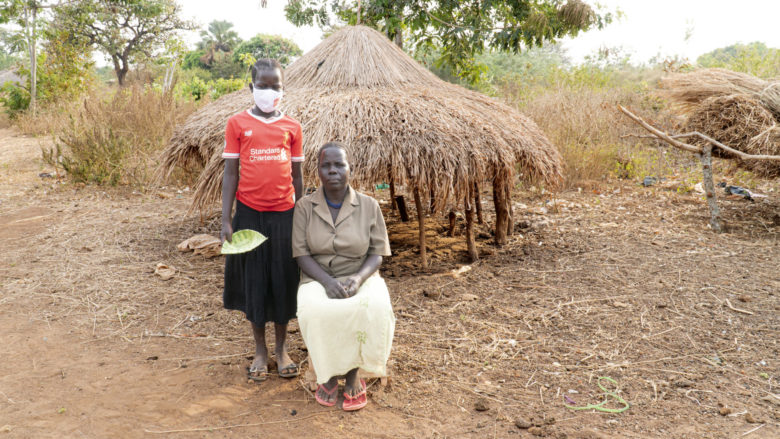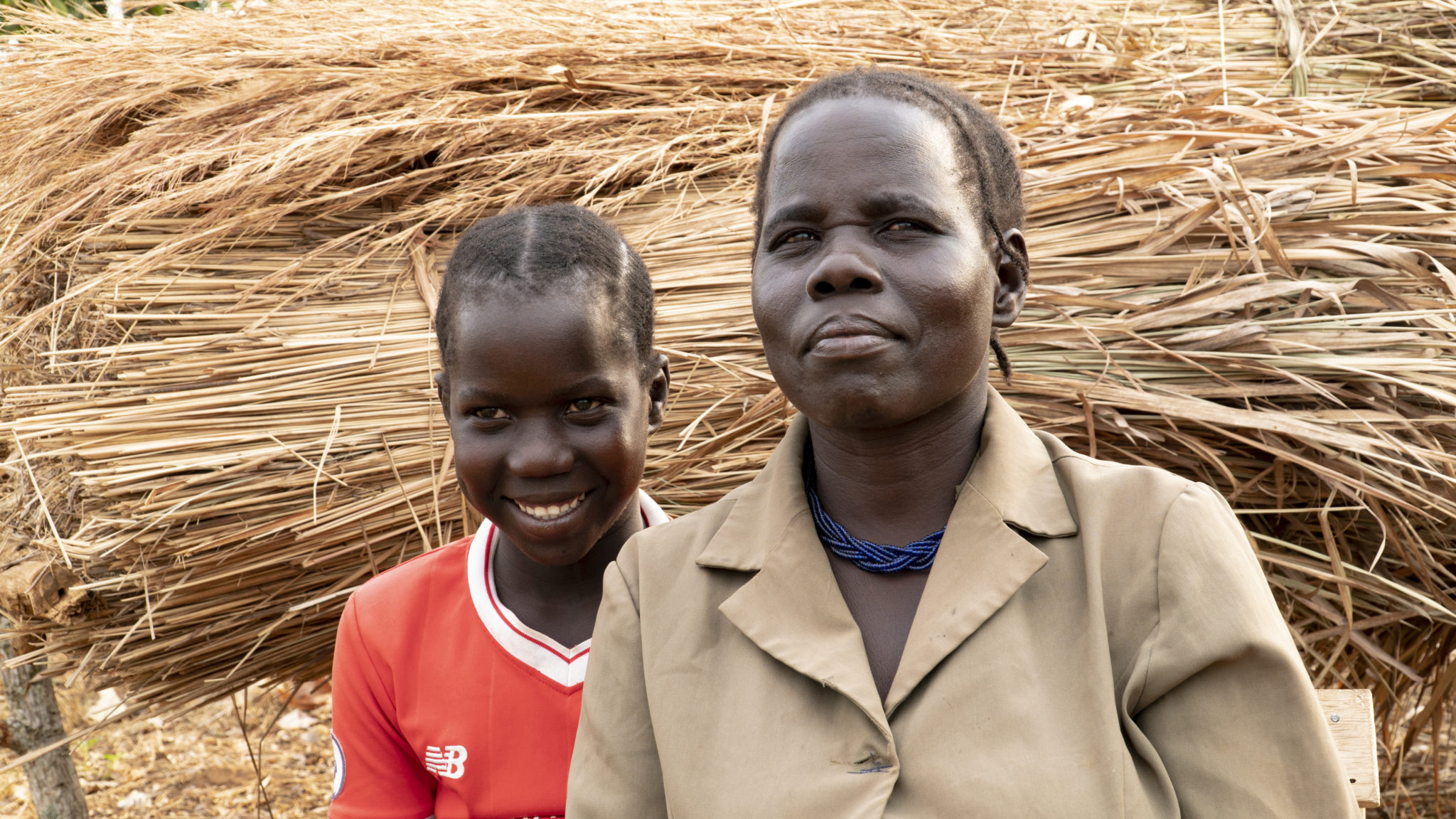“Please our parents – Be careful!”

A group of women and children sit in front of a hut seeking shade from the sun. One of the children has a baby strapped tightly to her back with a white cloth. She is not much older than the bundled baby. The women and children have knives in their hands. They are sitting among a heap of recently harvested cassava. They are pealing the brown bark off the tuberous root. The poisonous starchy root will undergo a process to remove the toxins and be dried in the sun. A large wooden mortar and pestle lies on the ground nearby. It will be used to pound the dried cassava into flour. This is the most common food consumed in the village.
It is hot. The thermometer reads 36° C. You want to get out of the sun and seek shade. The scorching wind swirls dust in the air. Your sweat acts like glue on your skin to which the dust sticks. It penetrates every pore on your body. You are coated in dirt. A cow moos repeatedly and loudly nearby. Is it expressing the same discomfort we feel in this heat?
We seek a quieter place away from the inquisitive villagers to do the interview. Faima (43) and her daughter Nabila (13) sit near a rack where grass is drying. The grass will be used to patch the roofs of the mud huts. Nabila is the youngest of six children. She has the same bright red Liverpool football club shirt on that she had when we met her last year. She is finalizing weaving a dustpan made from green palm leaves. Nabila has not been in school since March 2020. Her education came to an abrupt halt when the pandemic struck. She has been going through the notes she made in school. She has not received any additional materials. How long can old notes continue to stimulate and hold her interest? When will she be able to go back to school? When will the pandemic relent and life return to normal in this remote village in northern Uganda?

Faima becomes quiet at one point. She struggles to hold back tears. “I am sick, I do not know what to do,” she says. She puts her head into her hands. “I have AIDS.” She has recently been tested for HIV. The test came back positive. She is now one of the 38 million people who are infected with the virus that causes AIDS. Her husband died in 2016. She did not know the cause of his death until now. Nabila nervously fingers the completed woven dustpan in her hands. She stares into the distance as she tries to process the significance of her mother’s words.
Nabila asks to sing a song. She sings:
AIDS AIDS AIDS, you give diseases
Killing people, young and old
Rich and poor, they all die
Please our parents, be careful
You see me here, I have no father
I stay alone, I sleep in fear
But no one cares, but no one knows
Please our parents, be careful
